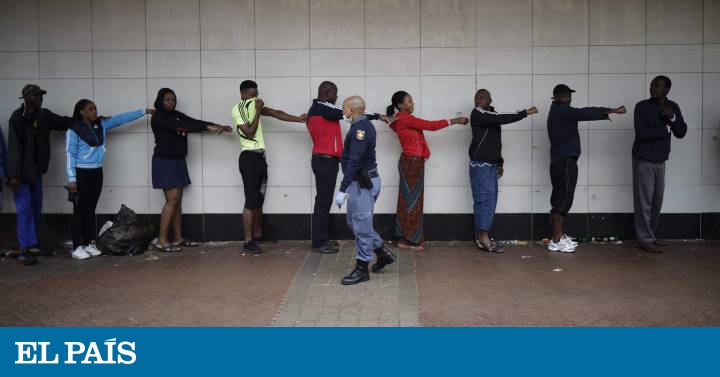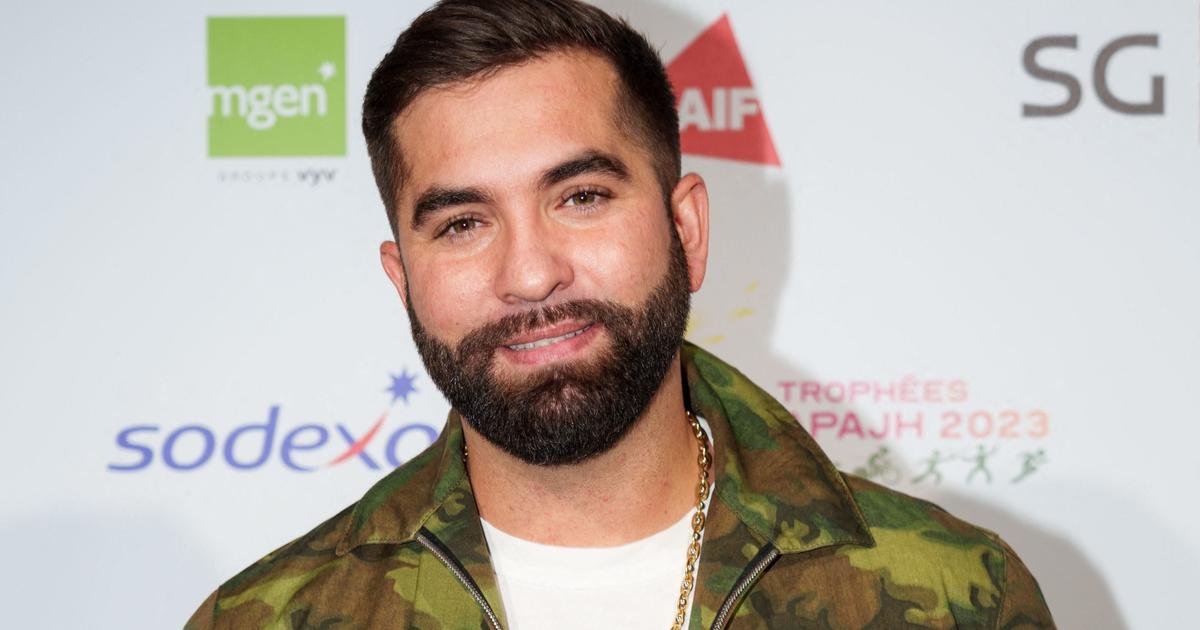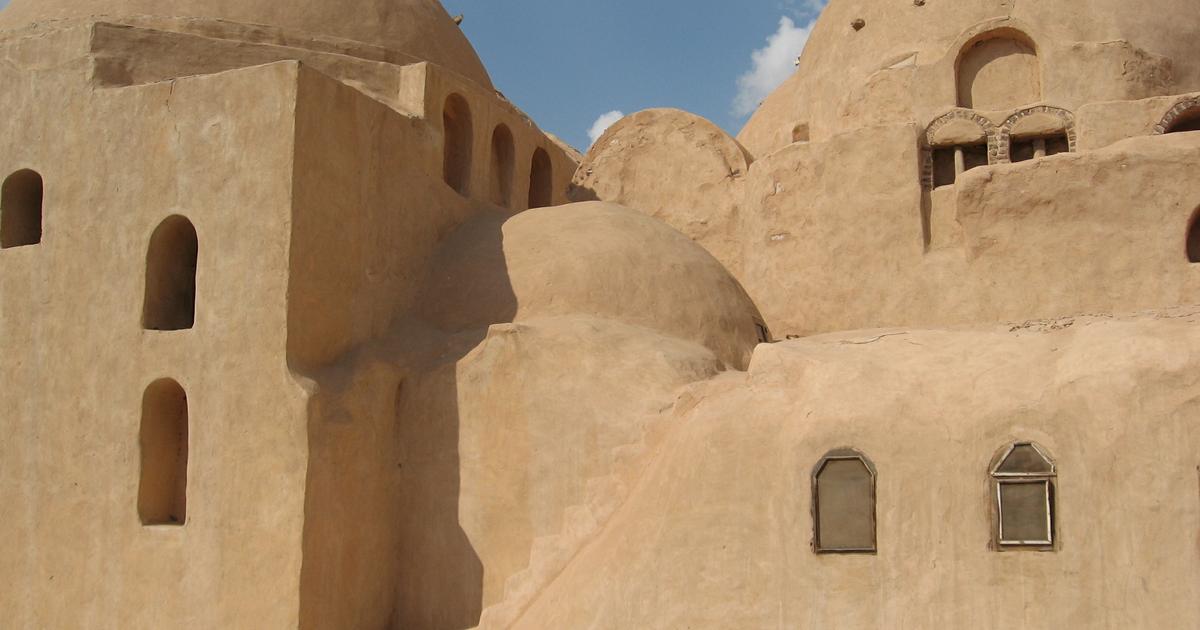Between isolation measures, curfews, social distances and all kinds of limits to physical contact, social networks in Africa, like in many other corners of the world, have become a kind of window. It is the last thread of connection with the outside for those who are confined, but also for many who, without being isolated, breathe these days the dizzying exchange of messages. Since countries with detected cases of Covid 19 began to fall as domino pieces, social media has been especially aligned with a very clear social function, that of raising awareness.
MORE INFORMATION
Latest news | Coronavirus in Africa- Coronavirus sneaks into Africa
- Africa: the weapon of experience in the face of lack of resources
A total of 217.5 million Africans have appeared on social networks since January, without the instant messaging applications. Less than a year ago, users were less than 200 million. Spreading the message and reaching as many citizens as possible has become the goal of all kinds of civic organizations, including many that were not in the healthcare environment. The explanatory videos make their way between the noise of the chatter that boredom generates and the confusion between the reliable information and the hoaxes. Humor, gossip, satire, security advice and malicious messages coexist in the conversation of African networks, just like global networks. Although in this case, two particular features unfold, the leading role in raising awareness and the use of national languages, precisely on platforms that, under normal conditions, speak mainly in English and French.
In West Africa, different collectives of bloggers and cyber activists have struggled to offer all the information, prevention tips and motivational messages in as many national languages as possible. For example in Niger, an initiative deployed under the hashtag #StopCoronaVirusNiger has managed to get different public figures, from doctors to humorists, singers, television presenters, politicians or activists to star in awareness-raising videos with messages in the different languages spoken in the country. The videos have been disseminated through Facebook groups and various publications on social networks, but also through private emails on messaging platforms such as WhatsApp.
Point épidémiologique #covidsn
Adoptons les gestes simples pou se protéger et protéger les autres:
Se️ Se laver régulièrement les mains à l'eau et au savon
Uss Tousser dans are coude
🤧 Use a mouchoir à usage unique
Pas Ne pas serrer la main # senStopCorona #fagaruNgirMuccu pic.twitter.com/MdTZ0gR6hc
The blogger organizations in most African countries have made use of the dissemination of verified information, the blocking of hoaxes in the networks and the amplification of awareness campaigns. From Benin, where bloggers have been actively involved in the # AgirContreCovid19 campaign alongside other actors in the digital ecosystem such as the Etrilabs innovation space, to the Central African Republic.
Senegal and sign language
A similar situation has occurred in Senegal, where several organizations have joined the awareness. From the dissemination of prevention measures in sign language, to the launch of the hashtag #Fagarungirmuccu that houses a considerable amount of information about the epidemic in this West African country, which also tries to build a community of collaborators and, above all , also emphasizes the use of national languages.
This is one of the aspects on which the activity of LAB Santé (the African League of Bloggers in Health, Population and Development) is focused, which is being used in depth to try to amplify the messages and which has produced videos in several of the languages nationals that speak in Senegal and that lead the #RakhassouChallenge , in which they have got messages from well-known characters, especially from the cultural scene and especially from the music scene.
In Senegal, moreover, various initiatives have been launched. An activist from the open data movement has developed a case counter, with all the information available to share, which has allowed the experience to be replicated in other countries such as Djibouti. Or even the profiles of the institutions that are dedicating great efforts to communication through social networks. Without going any further, the profile of the Presidency of the Republic is concerned with denying some of the most popular hoaxes around the disease.
Burkina, an app for self-diagnosis
In Burkina Faso, the first coronavirus death was detected in sub-Saharan Africa and now it is a Burkinabe engineer who has developed an application to facilitate the diagnosis of Covid-19. DiagnoseMe is a mobile application that is in the testing phase and with which the young Adama Sy Traoré has adapted a form proposed by the World Health Organization for a self-diagnosis action that lightens the burden on health services. The application is completed with chat bots animated by medical personnel and is also aimed at users in French, but also in local languages. The prototype arose precisely from the participation of its promoter at the head of a team from the Faso Cívic organization, in a hackathon to search for technological solutions to the crisis organized from Wuhan. The Burkinabe government is committed to collaborating in the development of this tool.
Nigeria, many luxury cars and few fans
For its part, in Nigeria, the first African country in which a case of coronavirus was declared, the most populous on the continent and one of the most dynamic digital ecosystems, activity on social networks is frenetic and diverse. The Nigeria Center for Disease Control, an African benchmark in epidemiology, has deployed a powerful online strategy, using social media as an awareness tool. Messages with information updates and prevention tips are widely shared. And despite the willingness to join forces and the predominance of informative and positive messages, networks in Nigeria have also saved considerable space for criticism, not in vain, #BuhariResign (BuhariDimite, in English) has been one of the trends in recent days. There was no lack of publications that have highlighted the deficiencies in resources, such as the thread that on Twitter compared the purchase of luxury vehicles for legislators with the cost of the few fans available in hospitals.
Kenya and mobile money
While in Kenya, the networks have responded to a campaign launched by the authorities, #KomeshaKorona (" Let's finish off the Crown", in Swahili). The label that at the end of last week was trending on Twitter in this country, managed to become the communication thread that conveyed a good part of the information that circulated in the digital environment. That does not mean that this label was a propaganda space, since the data led to criticism of the Government. At the same time, some technological solutions were put in place to deal with the exceptional situation. The world pioneering mobile money system M-Pesa, of Kenyan origin, was adapting to the new situation. Safaricom, the communications company powered by M-Pesa, announced that the Matatu, small buses that constitute the most popular public transport system in Nairobi, could be paid with the mobile money system to avoid cash exchange, eliminating some commissions and the minimum exchange limit.
South Africa and the youth choir
On the other hand, in South Africa there is a countdown. The announcement of 21-day isolation measures by the Government has led the networks to strip the daisy. The hashtag # 21DaysLockDownSA was quickly a trend on Twitter and since its launch has been accompanied by the corresponding day tag. In most cases, the messages joked about the activities carried out during the confinement. In the country with the most registered cases in sub-Saharan Africa, the networks have shown a certain resistance to isolation and prevention of contagion measures. If in the first days the videos of young people in discotheques defying the disease were widely shared, with the entry into force of the exceptional measures, the actions of the police spread. However, among the awareness-raising actions, the song and choreography of the Ndlovu Youth Choir, which has transcended South African networks and has been shared throughout the world as an example of kind awareness, cannot be forgotten.
You can follow PLANETA FUTURO on Twitter and Facebook and Instagram, and subscribe here to our newsletter.












/cloudfront-eu-central-1.images.arcpublishing.com/prisa/KMEYMJKESBAZBE4MRBAM4TGHIQ.jpg)


